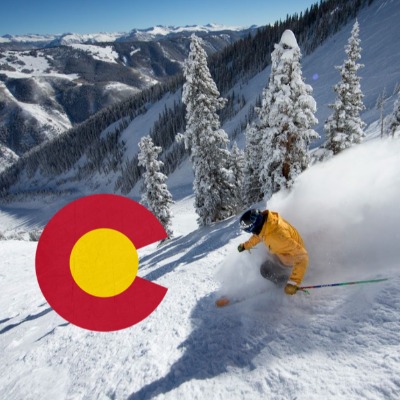Italy Looks At New Routes Towards Sustainable Winter Tourism

According to the Italian cable car industry association ANEF, the latest results for the 2024/2025 winter season were overall positive. Despite a winter with relatively little snow, the ski resorts were able to offer good conditions thanks to artificial snowmaking.
• Italian ski season 2024/25: Growth despite challenges
• Targeted measures by Italian ski resorts against overtourism
• De-stagionalization: Winter sports as a year-round activity
• Measures against overtourism in national and international comparison
• Impact on the Austrian tourism industry
• Winter sports in transition
Particularly noteworthy was the increase in international visitor numbers, while the number of Italian visitors declined slightly.
The Dolomiti Superski ski area, which encompasses 12 ski resorts in the Italian Dolomites, also recorded a slight increase in visitor numbers of 0.89%. The countries of origin of ski tourists were Italy (45%) and Germany (15%), while the USA gained importance through its collaboration with the IKON Pass, which provides access to over 50 international ski resorts.
Targeted measures by Italian ski resorts against overtourism
Against the backdrop of increasing visitor numbers, ski resorts are taking targeted measures to sustainably manage tourism development.
The Italian ski resort of Madonna di Campiglio, for example, will introduce a cap on daily ski passes during peak season starting next winter. The goal is to avoid overcrowding and improve the quality of the holiday experience. Furthermore, this restriction could have economic effects on tourism and related industries. It remains to be seen whether the new ski pass cap will further increase the resort's attractiveness to international guests or whether visitor flows will shift to other ski resorts.
Monterosa Ski, on the other hand, is already pursuing a different approach: Through dynamic pricing, the resort has been able to specifically manage visitor flows while simultaneously increasing the appeal of multi-day stays. This is reflected in the figures for the current record season – with 650,000 entries and an 11.4% increase in multi-day ski passes.
Destagionalization: Winter sports as a year-round activity
Many ski resorts are significantly shortening the time between winter and summer operations.
Almost all destinations are now working on deseasonalization – a trend that is becoming increasingly established and is already showing positive economic results. While previously certain periods were only open to provide essential services such as maintenance or limited tourist offerings, the economic benefits of this strategy are now being systematically exploited.
Measures against overtourism in national and international comparison
Outside Italy, ski resorts such as Grindelwald-Wengen (Switzerland), Aspen (USA) and Chamonix (France) are also implementing different strategies to combat overtourism – from ski pass caps and dynamic pricing to environmental regulations to regulate visitor numbers and improve the quality of the skiing experience.
Italy is increasingly implementing measures to regulate tourist flows, and not only in ski resorts. Measures such as entrance fees in Venice, visitor limits on beaches in Sardinia, restrictions on vacation rentals in Rome and Florence, and traffic regulations on islands such as Giglio and Lampedusa are intended to limit the influx. Sirmione is considering a daily fee and mandatory reservations, while Capri is reducing ferry frequencies and calling for new legal regulations to manage visitor numbers.
Impact on the Austrian tourism industry
These developments in Italy could also have an impact on the Austrian tourism industry. Tour operators, hotels, and ski equipment companies must adapt strategically. Early bookers benefit, while spontaneous travelers face challenges.
New questions are also emerging for the ski industry: Fewer skiers could impact equipment sales, while premium offerings are experiencing greater demand. Sustainable tourism strategies are also increasingly being discussed in Austria – could a ski pass cap serve as a model for domestic ski resorts?
Winter sports in transition
The winter sports industry is in the midst of a transformation. Sustainable concepts are becoming increasingly important to limit overtourism and ensure long-term economic stability. Companies that respond early to these new trends could secure a competitive advantage.














